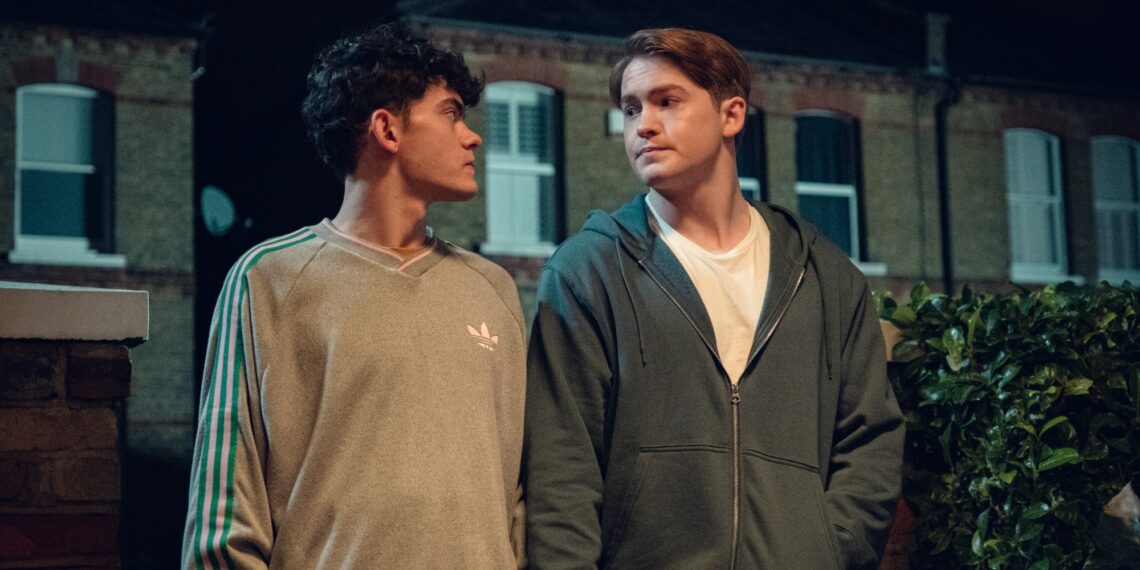Heartstopper season 3: A deep dive into young love and its complexities
Spoiler Alert: This article contains spoilers for Season 3 of “Heartstopper,” now streaming on Netflix.
Evolving from love to deeper connections
The first two seasons of Heartstopper focused on the blossoming of young love, tracing the journey of the introspective Charlie Spring and his newfound romance with the confident Nick Nelson. Where the initial episodes portrayed the excitement of falling in love, Season 3 shifts gears, delving into the intricacies of maintaining a relationship, mental wellness, and significant life changes. Creator Alice Oseman, adapting her own graphic novels, skillfully navigates these themes, making this season one of the most resonant yet.
Exploring intimacy and wellness
Sex is an undeniable theme in Season 3. Charlie and Nick take a significant step in their relationship by having sex for the first time, mirroring the growing intimacy in the lives of their friends, Elle and Tao. However, Oseman’s approach is far from gratuitous. Instead, she presents thoughtful discussions on insecurities, sexual wellness, privacy, and the emotional landscapes of such intimate experiences.
Addressing mental health
Season 3 begins three weeks after the ending of Season 2, with Charlie, Nick, and their friends hitting the beach during the last month of summer holidays. Despite the idyllic setting, Charlie’s mental health is deteriorating. The initial episodes focus on his struggle with an eating disorder and overall mental wellness. Nick, ever the protector, encourages Charlie to open up to his parents, resulting in a two-month separation while Charlie undergoes in-patient treatment. This subplot underscores the importance of safety and mutual support in relationships.
Dynamics between other characters
While Charlie focuses on his mental health, the narrative also explores Elle and Tao’s relationship. Their bond, built on trust and deep friendship, is tested as they explore the physical aspects of their connection. Through frank discussions about body dysmorphia and mutual comfort levels, their story presents another layer of the realistic portrayal of young relationships.
The role of adults and communication
Heartstopper also highlights the positive influence of adults in the lives of Charlie, Nick, and their friends. Despite some friction with his mother, Charlie finds trust and understanding in other adults like Nick’s aunt, Diane. These relationships emphasize the importance of open, honest communication and guidance, especially in matters related to mental health and sexual wellness.
Emotional and physical alignment
In this series, the alignment between emotions and physical intimacy is crucial. The show goes beyond the superficial aspects of teen sex, highlighting the importance of consent, mutual comfort, and open conversations. Charlie’s session with his therapist addresses his insecurities, which include his lean physique and self-harm scars. This therapy session empowers him to openly communicate his concerns with Nick, emphasizing the necessity of mental and emotional readiness for a fulfilling intimate relationship.
Young love and its authenticity
Heartstopper dispels the notion that young love and teen sex are trivial. The portrayal of these emotions as profound and transformative offers a refreshing perspective. By showing the complete spectrum of sexual exploration, from affectionate kisses to awkward yet tender moments, the series removes stigmas and presents teen sex as a natural and thrilling part of human experience.
A great watch
Season 3 of Heartstopper stands out for its deep, realistic portrayal of the complexities involved in young love, mental wellness, and sexual intimacy. The blend of thoughtful dialogue and character development offers viewers a series that’s not only engaging but also deeply relatable.
Did you enjoy this article? Share it on your social channels and let us know your thoughts! Don’t miss out on the latest updates! Follow us on social media to stay informed about the newest releases.

 Italian
Italian







